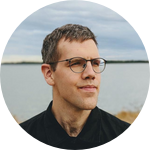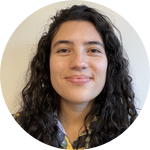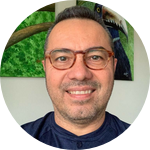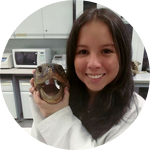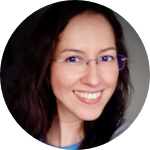Project Results
We want to thank everyone who helped us get to this stage. We have developed multiple workshops (see attached) with their R materials for teaching conservation genetics in Spanish. We hope to teach these workshops in the coming months.
About This Project
Latin America hosts 40% of the biodiversity of the world. In order to foster conservation, we seek to improve computational literacy of the next generation of researchers and conservation practitioners. To do that, we are developing a series of workshops in Spanish on computational skills for data-driven biodiversity conservation. We are asking the general community and the “Biotech for Conservation challenge grant” to support the development of our “Conservation genetics” workshop.
Ask the Scientists
Join The DiscussionWhat is the context of this research?
Genetics has made important contributions to biodiversity protection. For example, with genetics we can detect species just from traces of their DNA in a sample of water, or identify populations that are better adapted to specific environments. Despite its demonstrated utility, genetic tools are rarely incorporated into routinely management practices. One cause is the lack of familiarity of practitioners with evolutionary biology terms. In the Global South,additional challenges include the language barrier for non-English speakers. The current biodiversity crisis requires immediate action from all possible actors. We believe that adequate knowledge transfer efforts to local conservation managers can greatly increase the current penetration of science in biodiversity conservation.
What is the significance of this project?
We are currently in a biodiversity crisis. Many species are declining, as such, the next generation of conservation managers and practitioners needs to be able to make evidence-based decisions using up-to-date tools to conserve biodiversity. Conservation genetics is a key tool for the conservation manager’s tool box, and for some species, it is our only hope to restore their populations. Solutions to our current biodiversity crisis require a multi-pronged approach, and we believe that training the next generation of conservation practitioners directly in the Global South is one of these approaches. This workshop will provide hands-on data science experience to students and future conservation practitioners on the current techniques and applications of genetics to conservation science.
What are the goals of the project?
We wish to determine how students respond to a conservation genetics workshop, specifically whether they are more willing to use genetics as a conservation tool in the future. To do this, we will create a free online workshop in Spanish to be initially delivered to 40 students.
We will recruit a student to help us expand the literature search and create a document of the workshop based on our currently developed lesson plan. The lessons will consist of theoretical and practical sessions. The theoretical sessions will present key concepts of evolutionary biology and genetics. The practical sessions will comprise computer exercises where students will analyze real datasets. The workshop will be freely available online. We will assess students' learning progress through an anonymous survey.
Budget
We have already defined the main themes to be developed in the workshop, as well as compiled a series of papers that we will use for this purpose. We have also assembled a team of biodiversity scientists. We are asking for funding to pay a graduate student to help us develop some of the material for the “Conservation genetics” workshop. This graduate student will read the already compiled literature and organize it in the form of a workshop.
Endorsed by
 Project Timeline
Project Timeline
We will hire a graduate student as soon as we get funded. Since we have already delineated the literature and the concepts we want to cover, we expect them to start working as soon as they can. We anticipate they will work 8 hours a week on this project, which should be completed in 3.5 months.
Feb 15, 2022
Project Launched
Aug 31, 2022
Completed powerpoint presentation
Aug 31, 2022
Completed markdown document
Meet the Team
Affiliates
Team Bio
We are a team of Colombian scientists interested in biodiversity and conservation science and a passion to train and empower non-English speaking students, researchers, and conservation practitioners. Dr. Angela Fuentes-Pardo is leading the content development for this workshop along with Carolina Narvaez. Drs. Laura Melissa Guzman and Juan Zuloaga have been working on the content development for the introduction to R workshops and Dr. Guzman will supervise the graduate student @ USC.
Laura Melissa Guzman
I am a computational ecologist. My main motivation is to use quantitative and computational tools to learn about patterns and processes in biodiversity to inform conservation actions. Specifically, I am focusing on estimating changes in pollinator distributions to prioritize areas for conservation. I am also passionate about teaching data science to biologists, having successfully published research on best practices to teach data science.
I am currently an assistant professor at the University of Southern California, where I lead the Ecological Data Science lab. I completed my PhD at the University of British Columbia, Canada, with Diane Srivastava, and I was a Liber Ero Postdoctoral fellow at Simon Fraser University.
Juan Zuloaga
I am a conservation biologist interested in applying my knowledge and skills in ecology, spatial analysis, and field biology in biodiversity conservation. I am a research Associate at McGill University working with Dr. Andrew Gonzalez in various projects including: i) developing methods and tools to help identifying Key Biodiversity Areas in Canada, and ii) developing the Biodiversity Observation Network Optimization System (BONOS) to track biodiversity change globally (GEOBON project). I am also the director of Ecodiversa Tropical, a Colombian NGO dedicated to biodiversity conservation.
Carolina Alvarez
I am a biology student at the Universidad de Los Andes in Colombia. I am interested in how molecular markers show the evolutionary processes in marine invertebrates. Currently, I am working on my undergraduate thesis dissertation in the group BIOMMAR of Juan Armando Sanchez. My work's objective is to compare the endolithic algae Ostreobium found in rocky substrate with the one found associated with corals to determine if they are the same species.
Angela Fuentes Pardo
I am an evolutionary biologist interested in how organisms respond and adapt to environmental and anthropogenic change, and how ecological and evolutionary processes give shape to genetic diversity on spatial and temporal scales.
My goal is to take advantage of the power of genomics, bioinformatics and landscape analysis to address these questions and develop genetic tools that can help report conservation and management efforts. I am currently a postdoctoral researcher in the group of Leif Anderson at the University of Uppsala, Sweden. I completed my Ph.D. at the University of Dalhousie, Canada, and my B.Sc. in Biology at the Universidad del Valle, Colombia
Additional Information
We have developed introductory workshops in Spanish to R, a widely used open-source software for statistical analysis and plotting https://www.ecodiversatropical.com/talleres. We are also developing workshops on data visualization and data wrangling. We expect to deliver these introductory workshops in Summer 2022 and the Conservation Genetics workshop in Fall 2022.
Project Backers
- 15Backers
- 100%Funded
- $2,701Total Donations
- $180.07Average Donation
